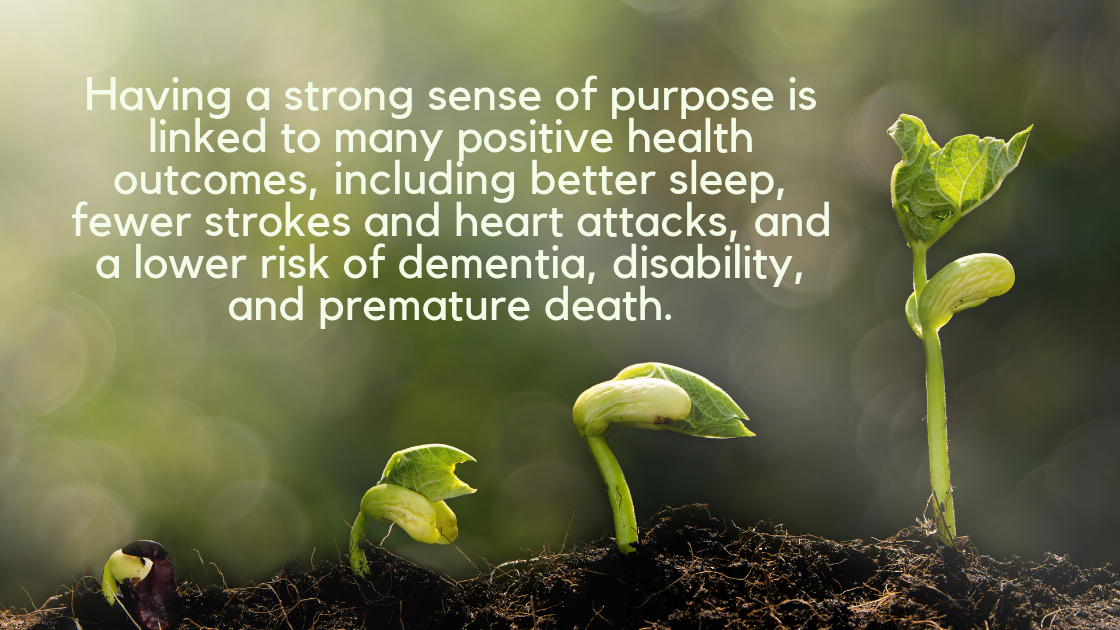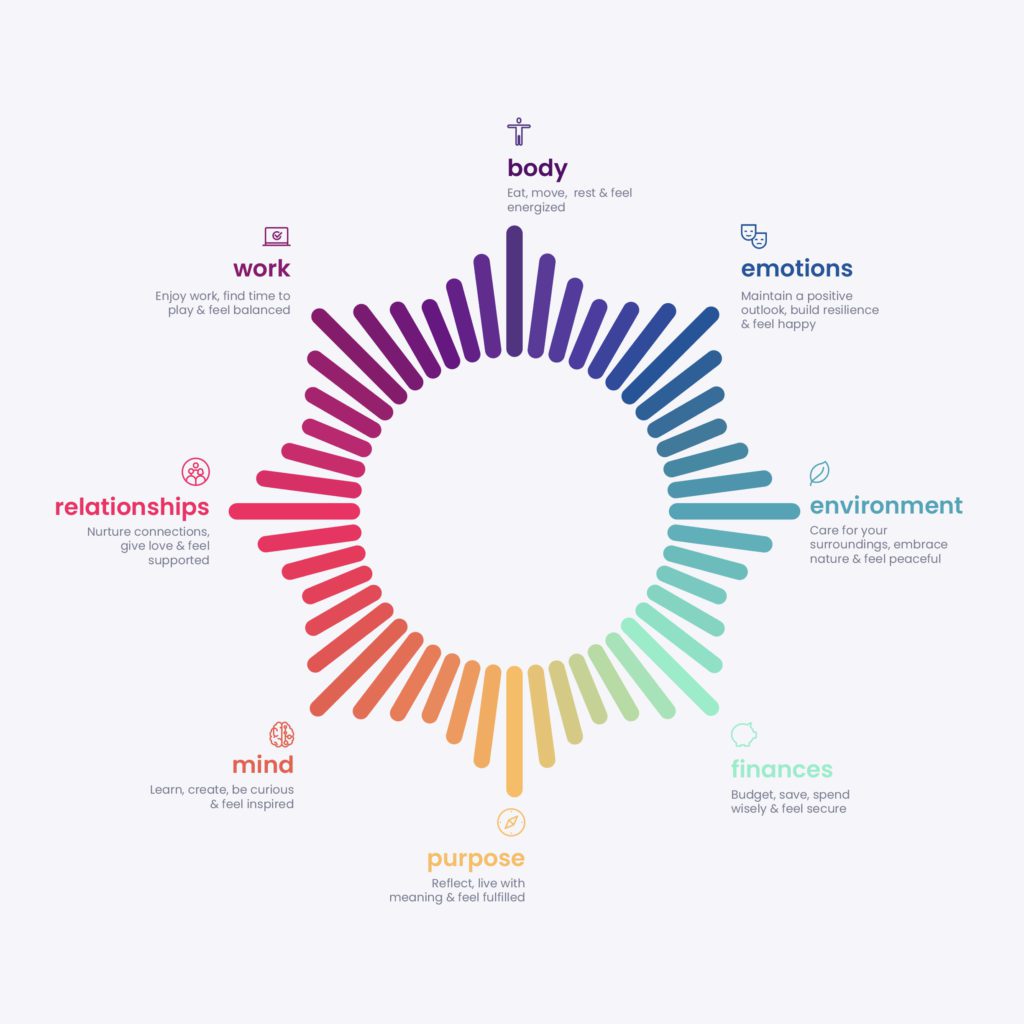How much meaning do you attach to your daily life?
From your body systems to your sense of purpose, your health and happiness are influenced by many things. This dimension is all about your sense of meaning and your personal values. It may not be the primary topic at your doctor’s office, but a lot of recent research shows that your sense of purpose is important to your overall health and happiness.
When you have a strong sense of purpose, you’ll be doing things that agree with your personal values and beliefs. You may feel like you’ve found your “path” in life and feel a sense of reward from the things you do. Without a strong sense of purpose, you may feel disconnected and without direction. You may feel empty and unsure of what energizes or excites you.

Your sense of purpose affects the other health dimensions
- Purpose → body: Researchers aren’t sure why, but people with a strong sense of purpose and meaning take better care of their bodies. Compared to people who say they don’t have a purpose, they exercise more and follow medical advice better.
- Purpose → emotions: A strong sense of purpose is associated with being able to cope better with stress.
- Purpose → work: Knowing your purpose can help you find meaningful and enjoyable work.
Strengthening your sense of purpose
To improve your sense of purpose, you may need to first start with some small habits that help you discover what that means for you. This isn’t a “fast fix”—because research says that fast fixes don’t stick. We really encourage you to dive in with energy and curiosity, understanding that staying healthy and happy is a long game—a lifelong game, in fact. Three things you can do today to discover or strengthen your sense of purpose:
- Small acts of kindness! Helping others can lead to a sense of meaning. Start by doing a small act of kindness every day—perhaps find a place where you can volunteer.
- Values! Take some time to write down your core personal values. If you start out with a long list, try to group them to narrow them down so you have your top 5-10 values. Check to see if your work and everyday actions support your core values.
- Find your community! Our purpose and our community are often connected. Find a community (this could be your kid’s school, your work colleagues, your religious community, etc.) where you have a strong sense of belonging. Then nurture those relationships.
Your sense of purpose is one part of your whole health picture.

Read about all eight dimensions of health. They overlap, intertwine, and impact one another. If you’re doing well in each of these dimensions, you’ll stay healthier and happier. Also, check out Carebook’s Facebook page where we’re building a healthy, happy community. We’d love to hear about your experiences with this dimension and others.
Learn more
- Six Tips for Making the Leap to Meaningful Work
- Finding a purpose for a good life. But also a healthy one.
- Can Helping Others Help You Find Meaning in Life?
- 6 Ways to Discover and Choose Your Core Values
- How to Help Kids Find Their Way in the World
References
- Hooker SA, Masters KS, Park CL. A meaningful life is a healthy life: A conceptual model linking meaning and meaning salience to health. Rev Gen Psychol. 2018 Mar;22(1):11–24.
- Lee J, Cho D, Suh YJ. Purpose and Meaning in Life and Job Satisfaction Among the Aged. Int J Aging Hum Dev. 2017 Dec;85(4):377–402.
- Van Tongeren DR, Green JD, Davis DE, Hook JN, Hulsey TL. Prosociality enhances meaning in life. J Posit Psychol. 2016 May 3;11(3):225–36.
- Baumeister RF, Vohs KD, Aaker JL, Garbinsky EN. Some key differences between a happy life and a meaningful life. J Posit Psychol. 2013 Nov;8(6):505–16.

